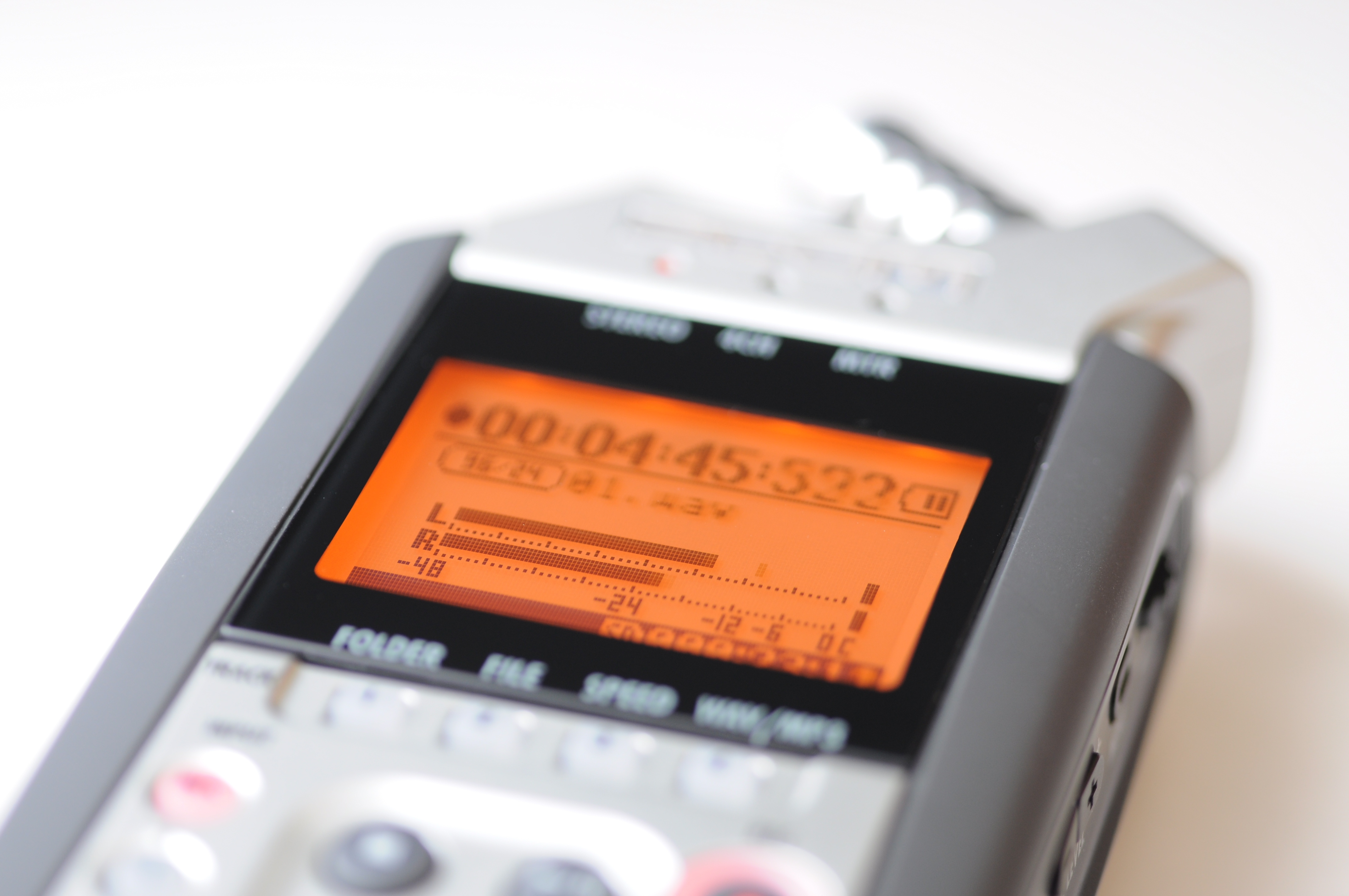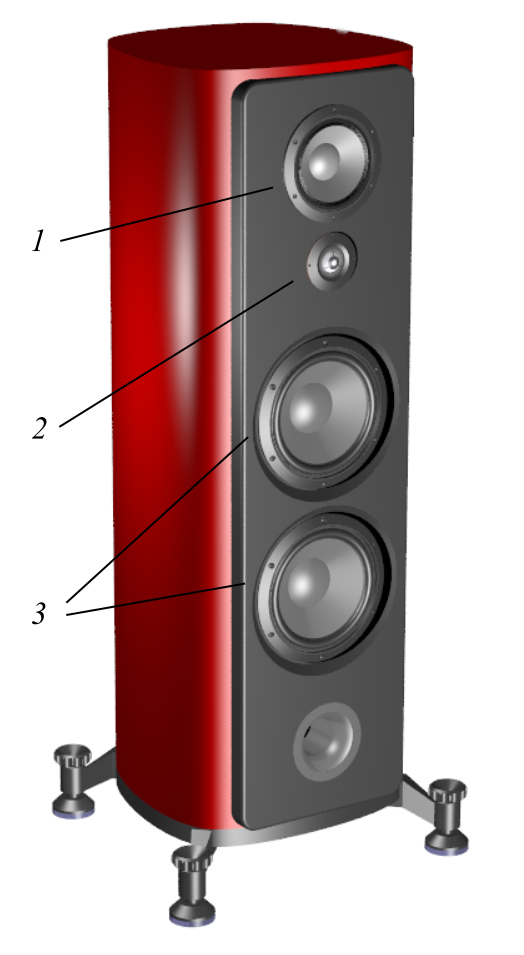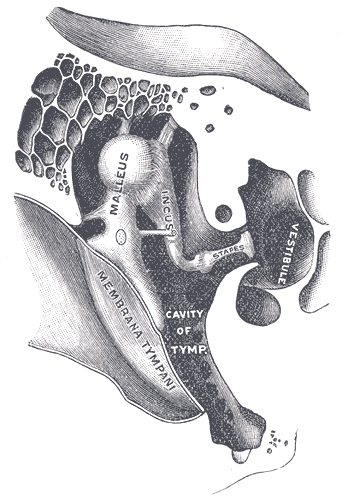|
Audio Storage
Sound recording and reproduction is the electrical, mechanical, electronic, or digital inscription and re-creation of sound waves, such as spoken voice, singing, instrumental music, or sound effects. The two main classes of sound recording technology are analog recording and digital recording. Sound recording is the transcription of invisible vibrations in air onto a storage medium such as a phonograph disc. The process is reversed in sound reproduction, and the variations stored on the medium are transformed back into sound waves. Acoustic analog recording is achieved by a microphone diaphragm that senses changes in atmospheric pressure caused by acoustic sound waves and records them as a mechanical representation of the sound waves on a medium such as a phonograph record (in which a stylus cuts grooves on a record). In magnetic tape recording, the sound waves vibrate the microphone diaphragm and are converted into a varying electric current, which is then converted t ... [...More Info...] [...Related Items...] OR: [Wikipedia] [Google] [Baidu] |
Frances Densmore Recording Mountain Chief2
Frances is a French and English given name of Latin origin. In Latin the meaning of the name Frances is 'from France' or 'free one.' The male version of the name in English is Francis. The original Franciscus, meaning "Frenchman", comes from the Franks who were named for the francisca, the axe they used in battle. https://nameberry.com/babyname/frances Notable people and characters with the name include: People * Frances, Countess of Périgord (died 1481) * Frances (musician) (born 1993), British singer and songwriter * Frances Estill Beauchamp (1860-1923), American temperance activist, social reformer, lecturer * Frances Burke, Countess of Clanricarde (1567–1633), English noblewoman and Irish countess * Frances E. Burns (1866-1937), American social leader and business executive * Frances Carr, Countess of Somerset (1590–1632), central figure in a famous scandal and murder * Frances Lewis Brackett Damon (1857–1939), American poet, writer * Frances Davidson, Viscountess ... [...More Info...] [...Related Items...] OR: [Wikipedia] [Google] [Baidu] |
Digital Audio
Digital audio is a representation of sound recorded in, or converted into, digital form. In digital audio, the sound wave of the audio signal is typically encoded as numerical samples in a continuous sequence. For example, in CD audio, samples are taken 44,100 times per second, each with 16-bit sample depth. Digital audio is also the name for the entire technology of sound recording and reproduction using audio signals that have been encoded in digital form. Following significant advances in digital audio technology during the 1970s and 1980s, it gradually replaced analog audio technology in many areas of audio engineering, record production and telecommunications in the 1990s and 2000s In a digital audio system, an analog electrical signal representing the sound is converted with an analog-to-digital converter (ADC) into a digital signal, typically using pulse-code modulation (PCM). This digital signal can then be recorded, edited, modified, and copied using compu ... [...More Info...] [...Related Items...] OR: [Wikipedia] [Google] [Baidu] |
Music Notation
Music is generally defined as the art of arranging sound to create some combination of form, harmony, melody, rhythm or otherwise expressive content. Exact definitions of music vary considerably around the world, though it is an aspect of all human societies, a cultural universal. While scholars agree that music is defined by a few specific elements, there is no consensus on their precise definitions. The creation of music is commonly divided into musical composition, musical improvisation, and musical performance, though the topic itself extends into academic disciplines, criticism, philosophy, and psychology. Music may be performed or improvised using a vast range of instruments, including the human voice. In some musical contexts, a performance or composition may be to some extent improvised. For instance, in Hindustani classical music, the performer plays spontaneously while following a partially defined structure and using characteristic motifs. In mod ... [...More Info...] [...Related Items...] OR: [Wikipedia] [Google] [Baidu] |
Player Piano
A player piano (also known as a pianola) is a self-playing piano containing a pneumatic or electro-mechanical mechanism, that operates the piano action via programmed music recorded on perforated paper or metallic rolls, with more modern implementations using MIDI. The rise of the player piano grew with the rise of the mass-produced piano for the home, in the late 19th and early 20th century. Sales peaked in 1924, then declined, as the improvement in phonograph recordings due to electrical recording methods developed in the mid-1920s. The advent of electrical amplification in home music reproduction via radio in the same period helped cause their eventual decline in popularity, and the stock market crash of 1929 virtually wiped out production. History In 1896, Edwin S. Votey invented the first practical pneumatic piano player, called the Pianola. This mechanism came into widespread use in the 20th century, and was all-pneumatic, with foot-operated bellows providing a s ... [...More Info...] [...Related Items...] OR: [Wikipedia] [Google] [Baidu] |
Music Box
A music box (American English) or musical box (British English) is an automatic musical instrument in a box that produces musical notes by using a set of pins placed on a revolving cylinder or disc to pluck the tuned teeth (or ''lamellae'') of a steel comb. The popular device best known today as a "music box" developed from musical snuff boxes of the 18th century and were originally called ''carillons à musique'' (French for "chimes of music"). Some of the more complex boxes also contain a tiny drum and/or bells in addition to the metal comb. History The Symphonium company started business in 1885 as the first manufacturers of disc-playing music boxes. Two of the founders of the company, Gustave Brachhausen and Paul Riessner, left to set up a new firm, Polyphon, in direct competition with their original business and their third partner, Oscar Paul Lochmann. Following the establishment of the Original Musikwerke Paul Lochmann in 1900, the founding Symphonion busines ... [...More Info...] [...Related Items...] OR: [Wikipedia] [Google] [Baidu] |
Loudspeaker
A loudspeaker (commonly referred to as a speaker or speaker driver) is an electroacoustic transducer that converts an electrical audio signal into a corresponding sound. A ''speaker system'', also often simply referred to as a "speaker" or "loudspeaker", comprises one or more such speaker ''drivers'', an enclosure, and electrical connections possibly including a crossover network. The speaker driver can be viewed as a linear motor attached to a diaphragm which couples that motor's movement to motion of air, that is, sound. An audio signal, typically from a microphone, recording, or radio broadcast, is amplified electronically to a power level capable of driving that motor in order to reproduce the sound corresponding to the original unamplified electronic signal. This is thus the opposite function to the microphone; indeed the ''dynamic speaker'' driver, by far the most common type, is a linear motor in the same basic configuration as the dynamic microphone which uses suc ... [...More Info...] [...Related Items...] OR: [Wikipedia] [Google] [Baidu] |
Power Amplifier
An audio power amplifier (or power amp) is an electronic amplifier that amplifies low-power electronic audio signals, such as the signal from a radio receiver or an electric guitar pickup, to a level that is high enough for driving loudspeakers or headphones. Audio power amplifiers are found in all manner of sound systems including sound reinforcement, public address and home audio systems and musical instrument amplifiers like guitar amplifiers. It is the final electronic stage in a typical audio playback chain before the signal is sent to the loudspeakers. The preceding stages in such a chain are low power audio amplifiers which perform tasks like pre-amplification of the signal (this is particularly associated with record turntable signals, microphone signals and electric instrument signals from pickups, such as the electric guitar and electric bass), equalization (e.g., adjusting the bass and treble), tone controls, mixing different input signals or adding ... [...More Info...] [...Related Items...] OR: [Wikipedia] [Google] [Baidu] |
Digital Audio
Digital audio is a representation of sound recorded in, or converted into, digital form. In digital audio, the sound wave of the audio signal is typically encoded as numerical samples in a continuous sequence. For example, in CD audio, samples are taken 44,100 times per second, each with 16-bit sample depth. Digital audio is also the name for the entire technology of sound recording and reproduction using audio signals that have been encoded in digital form. Following significant advances in digital audio technology during the 1970s and 1980s, it gradually replaced analog audio technology in many areas of audio engineering, record production and telecommunications in the 1990s and 2000s In a digital audio system, an analog electrical signal representing the sound is converted with an analog-to-digital converter (ADC) into a digital signal, typically using pulse-code modulation (PCM). This digital signal can then be recorded, edited, modified, and copied using compu ... [...More Info...] [...Related Items...] OR: [Wikipedia] [Google] [Baidu] |
Hearing (sense)
Hearing, or auditory perception, is the ability to perceive sounds through an organ, such as an ear, by detecting vibrations as periodic changes in the pressure of a surrounding medium. The academic field concerned with hearing is auditory science. Sound may be heard through solid, liquid, or gaseous matter. It is one of the traditional five senses. Partial or total inability to hear is called hearing loss. In humans and other vertebrates, hearing is performed primarily by the auditory system: mechanical waves, known as vibrations, are detected by the ear and transduced into nerve impulses that are perceived by the brain (primarily in the temporal lobe). Like touch, audition requires sensitivity to the movement of molecules in the world outside the organism. Both hearing and touch are types of mechanosensation. Hearing mechanism There are three main components of the human auditory system: the outer ear, the middle ear, and the inner ear. Outer ear The outer ... [...More Info...] [...Related Items...] OR: [Wikipedia] [Google] [Baidu] |
Sample Rate
In signal processing, sampling is the reduction of a continuous-time signal to a discrete-time signal. A common example is the conversion of a sound wave to a sequence of "samples". A sample is a value of the signal at a point in time and/or space; this definition differs from the usage in statistics, which refers to a set of such values. A sampler is a subsystem or operation that extracts samples from a continuous signal. A theoretical ideal sampler produces samples equivalent to the instantaneous value of the continuous signal at the desired points. The original signal can be reconstructed from a sequence of samples, up to the Nyquist limit, by passing the sequence of samples through a type of low-pass filter called a reconstruction filter. Theory Functions of space, time, or any other dimension can be sampled, and similarly in two or more dimensions. For functions that vary with time, let ''S''(''t'') be a continuous function (or "signal") to be sampled, and let s ... [...More Info...] [...Related Items...] OR: [Wikipedia] [Google] [Baidu] |
Audio Signal
An audio signal is a representation of sound, typically using either a changing level of electrical voltage for analog signals, or a series of binary numbers for digital signals. Audio signals have frequencies in the audio frequency range of roughly 20 to 20,000 Hz, which corresponds to the lower and upper limits of human hearing. Audio signals may be synthesized directly, or may originate at a transducer such as a microphone, musical instrument pickup, phonograph cartridge, or tape head. Loudspeakers or headphones convert an electrical audio signal back into sound. Digital audio systems represent audio signals in a variety of digital formats.Hodgson, Jay (2010). ''Understanding Records'', p.1. . An audio channel or audio track is an audio signal communications channel in a storage device or mixing console, used in operations such as multi-track recording and sound reinforcement. Signal flow Signal flow is the path an audio signal will take from source to the s ... [...More Info...] [...Related Items...] OR: [Wikipedia] [Google] [Baidu] |




.jpg)

.jpg)
